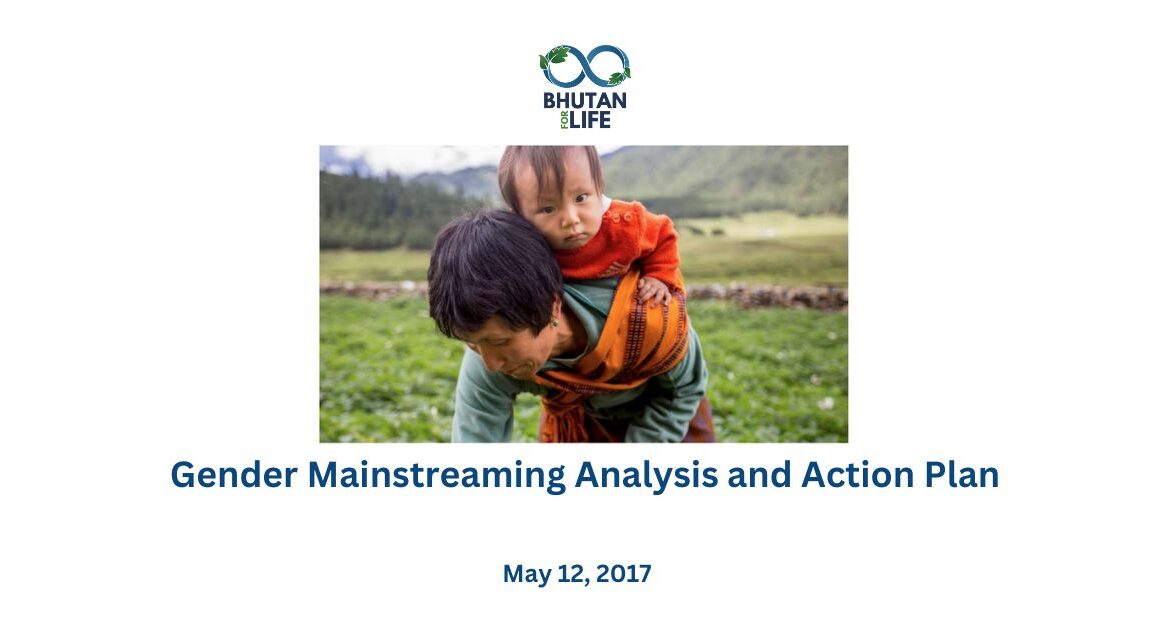The Royal Government of Bhutan and WWF are pursuing a Project Finance for Permanence (PFP) model. PFP is an innovative approach to sustainably finance the long term protection of ecosystems around the world. Thus Bhutan for Life project is a consequence of the PFP which will provide Bhutan’s government with a 40$ million transition fund until 2030 to build up and effectively manage a robust network of protected areas and wildlife corridors covering 51% of the country. The Green Climate Fund (GCF), from which funding is being sought, recognizes the importance of gender considerations in terms of project impacts and access to climate funding, taking a gender-sensitive approach and encouraging involvement of relevant stakeholders, including vulnerable groups and addressing gender aspects. Its gender policy is congruent with many international agreements including the Universal Declaration of Human Rights, the Convention on the Elimination of All Forms of Discrimination against Women, the Millennium Development Goals and Sustainable Development Goals, recognizing the equal rights of women and men to access the Fund’s services in order to adapt to and mitigate against the impact of climate change.
This gender analysis has been undertaken in light of the GCF Gender Policy, and The gender policy of the WWF Network
The Gender Analysis Report aimed at identifying possible areas of gender intervention to support gender equality with the BFL project and address differentially vulnerability to climate change. The task required acquisition of data that required men’s and women’s needs, experiences and challenges in conservation and management of environment. The Harvard Gender Analytical framework was adopted to the local context and the analysis was based on the following aspects:
- Activity profile/ Division of Labor
- Socio-cultural gender perceptions
- Decision Making and Public Participation
- Differential Vulnerability to climate change
- Access and ownership of resources
- Laws, policies and institutional practices
- Strategic and Practical gender needs

